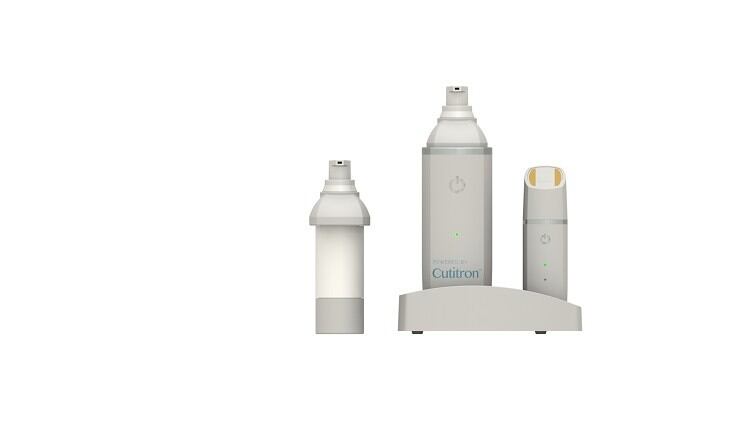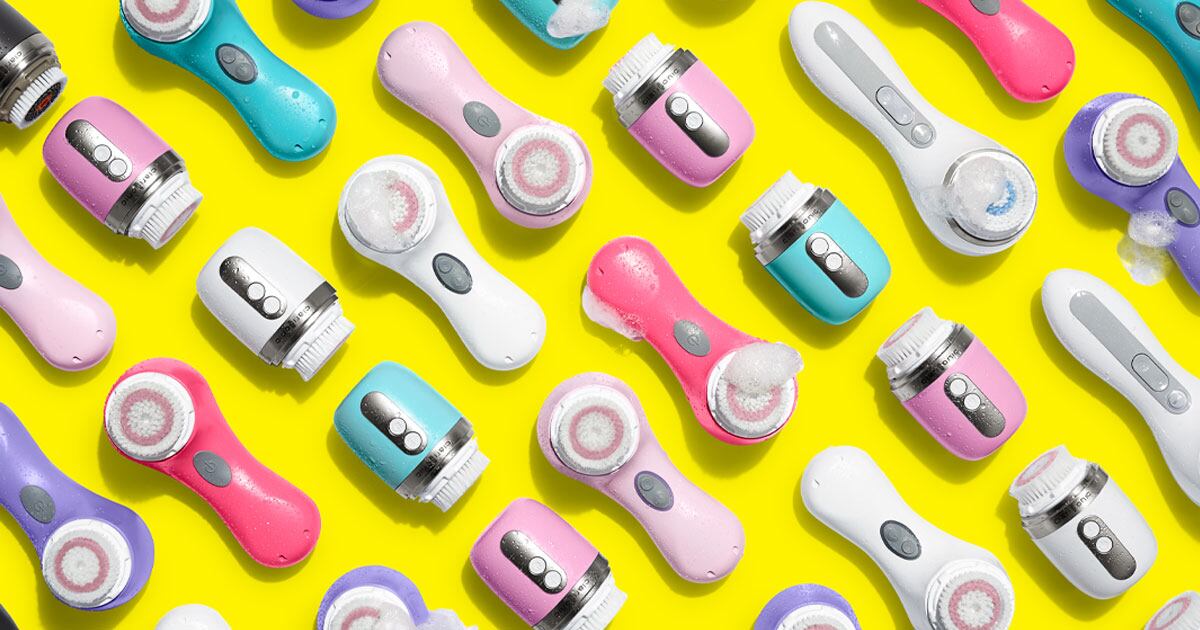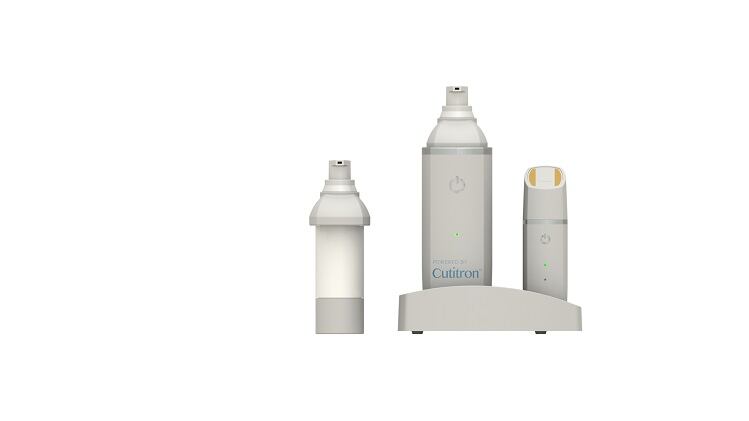The skin tech specialist wants to bring its patented white-label facial scanning device, skin care product dispenser and mobile app to premium beauty brands across Europe and beyond, firstly targeting France and Spain.
With the commercial market launch imminent – due shortly after summer – the Cutitron Technology suite enabled consumers to analyse their skin hydration in real-time and receive the correct dosage of a skin care product through the dispenser. Both devices were interlinked through a mobile app that tracked data, including external contributing factors like weather, location and age.
Whilst the technology currently only assessed skin hydration, Cutitronics was also working on other technologies that would eventually enable real-time analysis of other skin properties like lines and wrinkles. But, Virginie Darteyre, France sales manager at Cutitronics, said hydration was at the heart of everything beauty-related and highly sought after among skin care consumers.
“You can use all the anti-ageing products you want, but if hydration isn’t there, your skin is not going to be able to absorb the product in the right way,” Darteyre told CosmeticsDesign-Europe.
Cutitronics a good fit for ‘high-end’ beauty brands
Speaking about the European expansion and imminent commercial launch, she said Cutitronics’ plan was to target the prestige beauty space, particularly in France.
“We think that for the high-end brands such as Chanel, LVMH and Clarins – those brands would be a perfect fit for our technology. So, we’re targeting those but we’re also targeting middle-route to high-end brands. Spa brands too – our technology would really fit into the spa world.”
Darteyre said the goal was to start a trial with a French beauty brand before the end of 2020.

Asked why Cutitronics saw a fit for prestige beauty specifically, rather than mass beauty, she said: “The value for the brand is really making sure that the actives [the brand] put in their cosmetic skin care products are really effective and used in an effective way, which is often not the case because consumers don’t necessarily have the right routine or know how to apply the product. …It’s so interesting for high-end brands because they would want to make sure that the technology they are matching with ensures consistence and relevant results.”
Adaptive, white-label technology – a ‘big differentiator’
The beauty tech space has boomed in recent years, with a flurry of personalised, at-home device innovations from major brands like L’Oréal with its Perso device – set to launch next year – and Shiseido with its subscription-based Optune personalised skin care service. And then there was the raft of tech-forward firms and start-ups like L’Occitane-owned Duolab, Swedish skintech brand Foreo and artificial intelligence (AI) and augmented reality (AR) specialist Perfect Corp continuing to advance in the beauty device and app space.
Darteyre said: “The opportunity is massive at the moment (…) Technology is really part of our life now, in every aspect of our lives, so why not in skin care too?”
Cutitronics’ white-label strategy, she said, meant the technology was “really adaptive” to brand needs, with final formats, colours and outer packaging all able to be adapted to very specific needs – increasingly important in a competitive space, she said. Offering white-label products was a “big differentiator” in the market that helped give Cutitronics a competitive edge in the burgeoning beauty tech space, she said.
Highly relevant in a post-COVID beauty world
Darteyre said that as countries came around to some sort of ‘new normal’ after the initial outbreaks of the ongoing coronavirus (COVID-19) pandemic, the technology was also increasingly relevant.
“It has never been more important for beauty brands to incorporate new technological solutions into their strategies to meet the challenges presented by the pandemic,” she said.
“Beauty counters will be unable to operate as before, and spas and salons must overhaul their processes and systems to survive. The potential of these technologies to support independent and corporate brands is unprecedented. Demand for this is only going to increase as consumers change the way they interact with skin care, and brands look to find new ways to engage with consumers.”
Wilma McDaniel, commercial director of Cutitronics, recently told sister site CosmeticsDesign the future of beauty tech, particularly considering COVID-19, would be omni-channel.
“I believe we’re going to see an acceleration of technology like never before,” McDaniel said.




